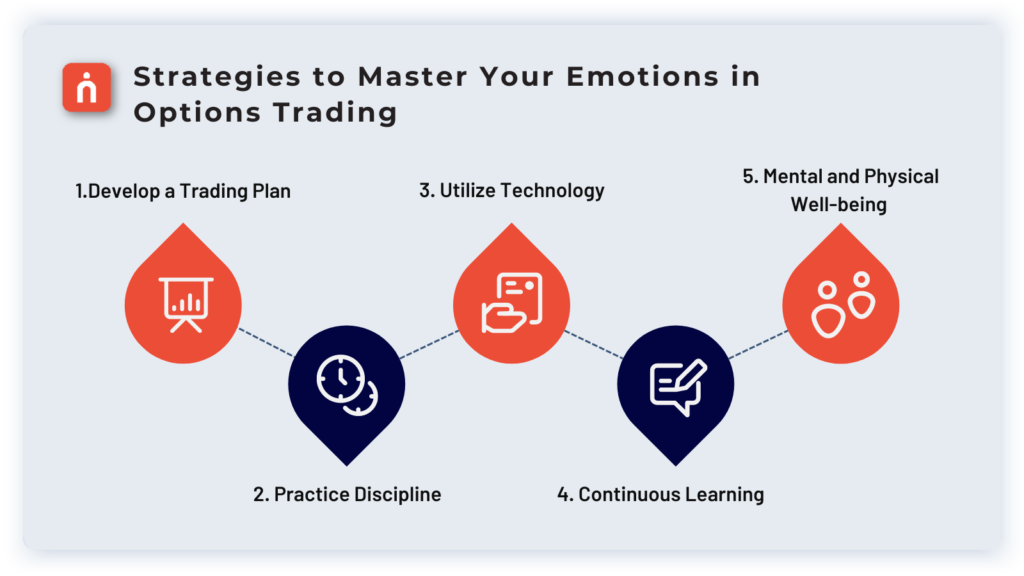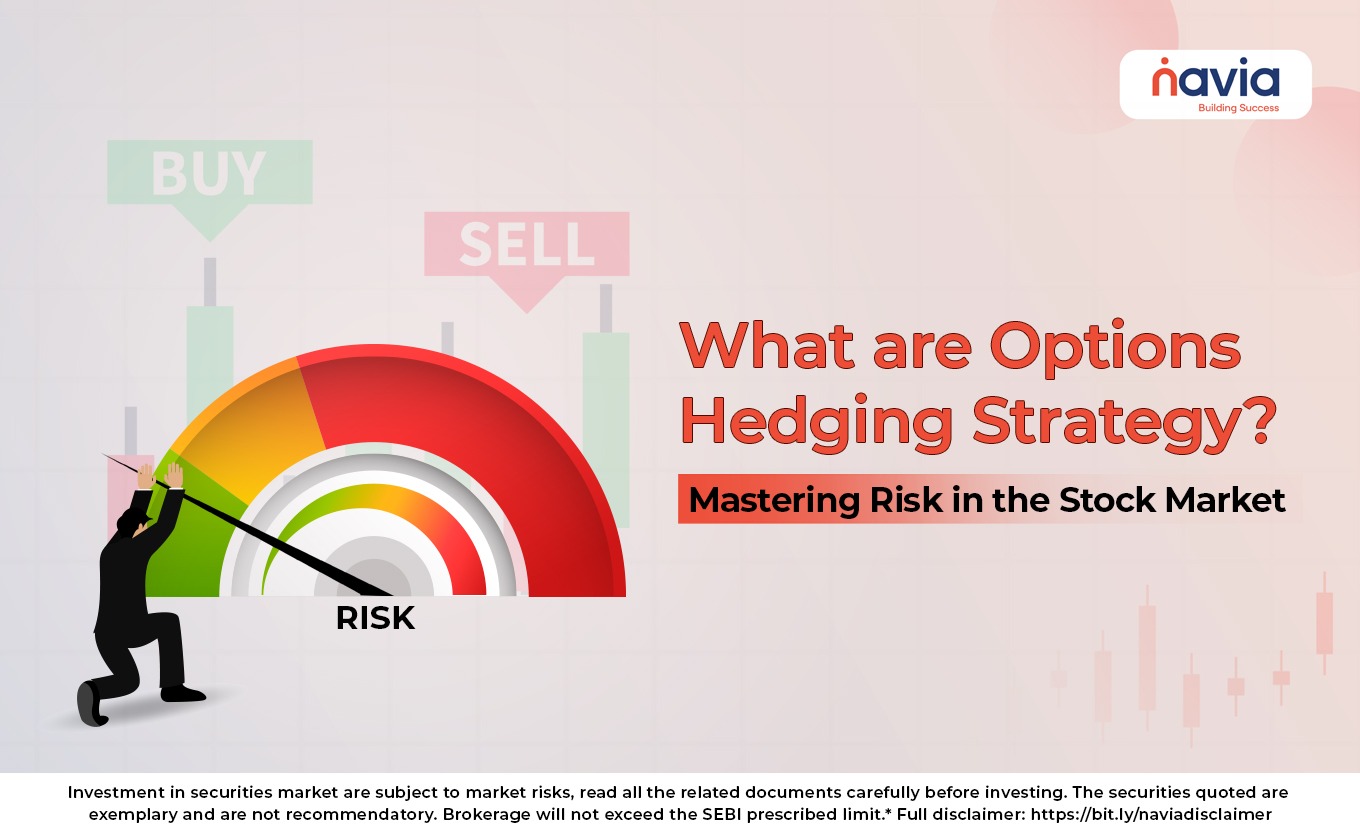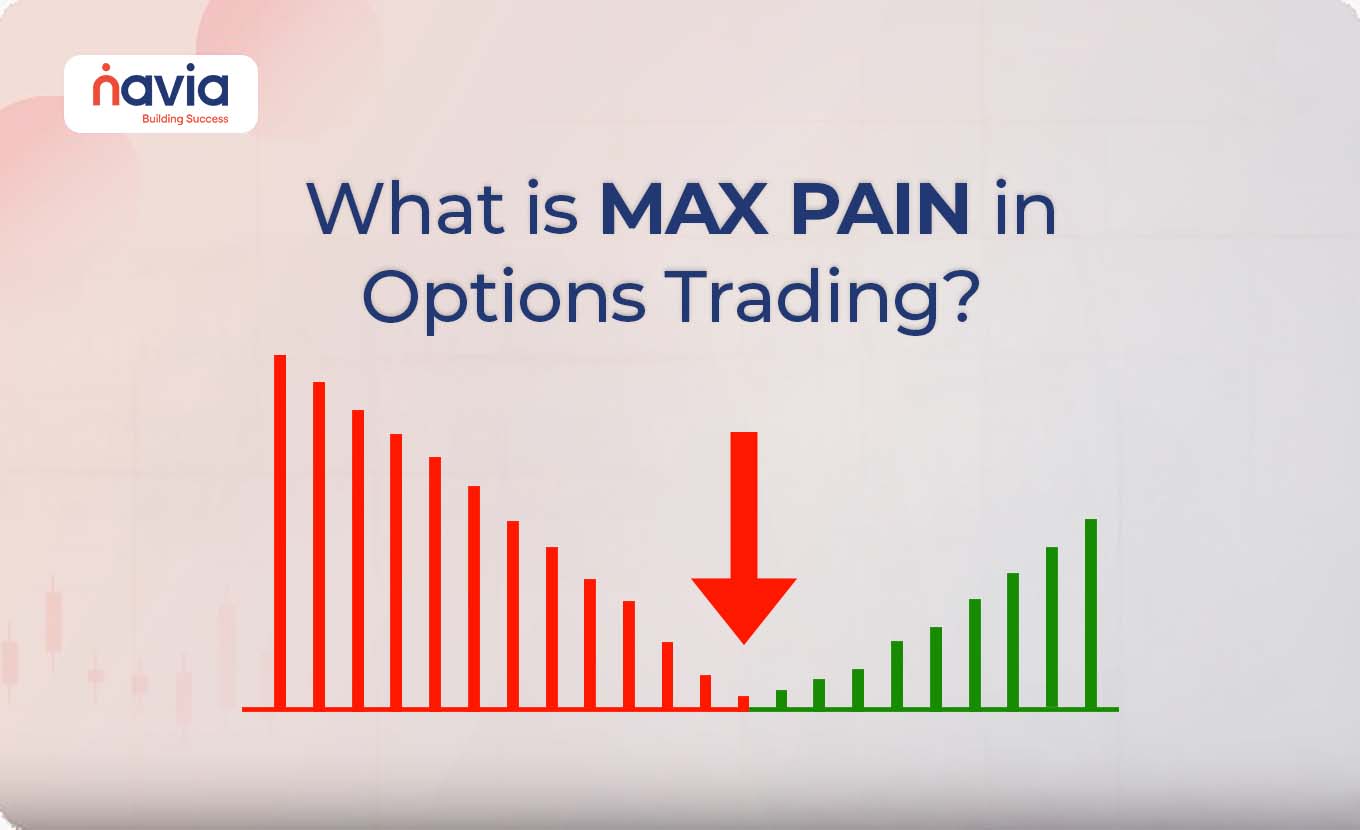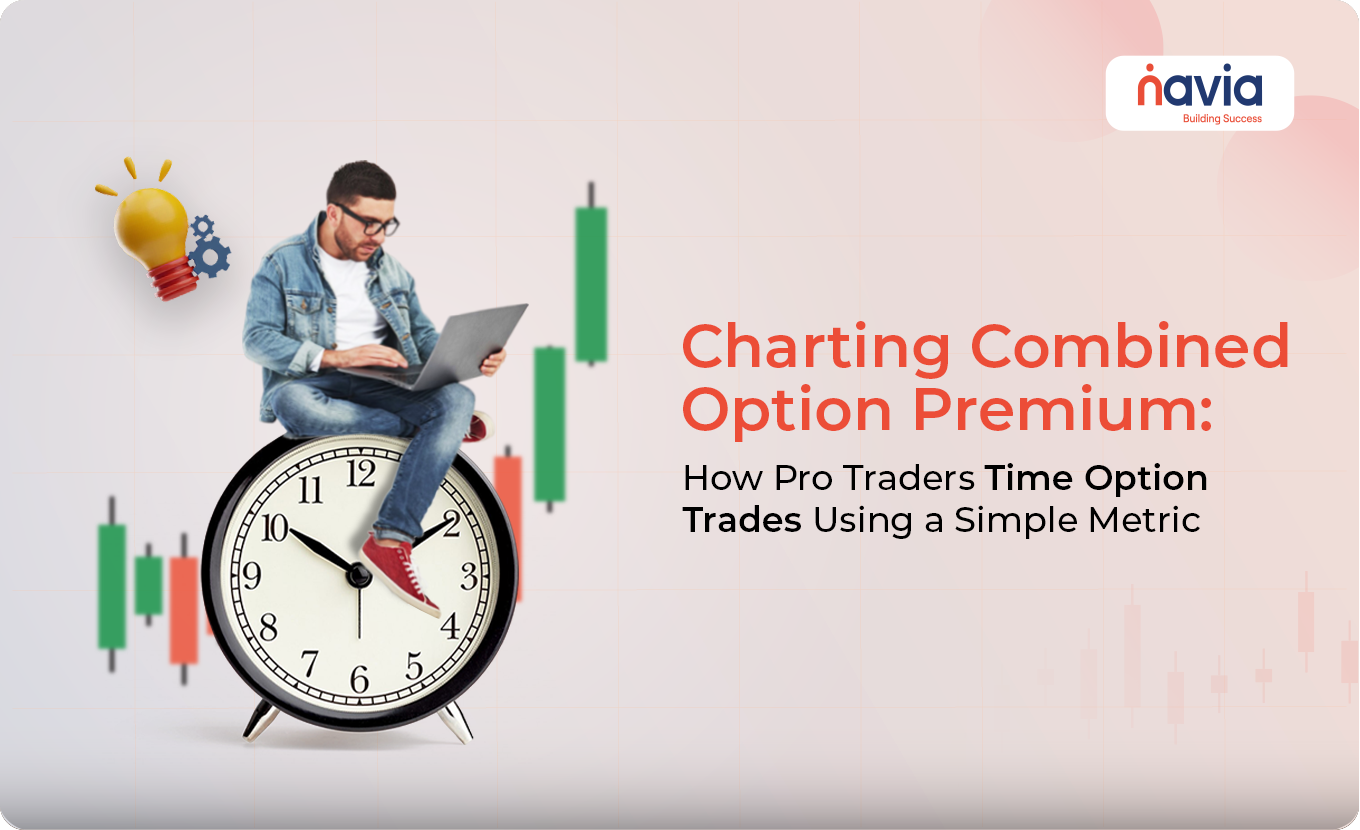The Psychology of Options Trading: Mastering Your Emotions

Options trading is not just about understanding market mechanics and making calculated bets; it’s equally about mastering your emotions and maintaining psychological composure. The volatile nature of options markets can evoke intense emotions, which, if not properly managed, can lead to irrational decisions and significant financial losses. This blog explores the psychological aspects of options trading and provides strategies to master your emotions for better trading outcomes.
Understanding the Emotional Landscape of Options Trading
The Emotional Rollercoaster
Options trading often involves a whirlwind of emotions—excitement, fear, greed, and regret, among others. These emotions can be triggered by market volatility, unexpected news, or even personal financial pressures. Acknowledging and comprehending these emotions is the initial step toward mastering them.
» Excitement: The potential for high returns can lead to overconfidence and excessive risk-taking.
» Fear: Fear of losing money can cause hesitation and missed opportunities.
» Greed: The desire for more profits can result in holding onto positions for too long.
» Regret: Past mistakes can haunt traders, leading to a lack of confidence in future decisions.
Common Psychological Biases
Several cognitive biases can influence trading decisions, often leading to suboptimal outcomes:
» Overconfidence Bias: Overestimating one’s knowledge and ability to predict market movements.
» Confirmation Bias: Focusing on information that confirms pre-existing beliefs while ignoring contrary evidence.
» Loss Aversion: The tendency to prioritize avoiding losses over making equivalent gains, which can result in irrational decision-making.
» Recency Bias: Giving undue importance to recent events while disregarding long-term trends.
The Impact of Stress on Decision Making
How Stress Levels Affect Cognitive Functions and Decision-Making Abilities
Stress can significantly impair cognitive functions, leading to poor decision-making in options trading. High stress levels can cause anxiety, reduce concentration, and lead to impulsive actions. When traders are stressed, they may struggle to analyze market data accurately, miss critical signals, or make hasty decisions driven by fear rather than logic.
Techniques to Manage Stress Effectively to Maintain Clarity and Focus
Managing stress is crucial for maintaining clarity and focus in trading. Practices like mindfulness meditation, deep breathing exercises, and regular physical activity can effectively lower stress levels. Additionally, taking breaks away from the trading screen and ensuring a healthy work-life balance can prevent burnout and improve overall decision-making abilities.
The Role of Patience in Trading
Why Waiting for the Right Opportunities Can Be More Profitable Than Constant Trading
Patience is a key virtue in options trading. Waiting for the right market conditions and entry points can lead to more profitable trades compared to constantly trading in every market fluctuation. Patience helps traders avoid unnecessary risks and make more calculated decisions, ultimately improving their long-term success.
Strategies to Cultivate Patience and Avoid Impulsive Decisions
Cultivating patience involves setting clear trading rules and sticking to them. Traders can practice waiting for their predetermined entry and exit points, avoiding the temptation to deviate based on short-term market movements. Regularly reviewing and reflecting on past trades can also help identify impulsive decisions and reinforce the importance of patience.
Emotional Intelligence in Trading
What Emotional Intelligence Is and Its Relevance in Trading
Emotional intelligence (EI) is the capacity to recognize, understand, and manage both your own emotions and the emotions of others. In trading, high EI enables traders to stay calm under pressure, make rational decisions, and maintain a balanced perspective during market volatility. It also helps in understanding market sentiment and reacting appropriately.
Practical Steps to Enhance Emotional Intelligence and Improve Trading Performance
To enhance emotional intelligence, traders can practice self-awareness by regularly monitoring their emotional responses to market events. Developing empathy by considering other market participants’ perspectives can also be beneficial. Techniques such as journaling, mindfulness, and seeking feedback from mentors or peers can help improve EI, leading to better trading outcomes.
Strategies to Master Your Emotions in Options Trading

Develop a Trading Plan
A well-defined trading plan acts as a roadmap, providing clear guidelines on when to enter and exit trades, risk management strategies, and profit targets. Sticking to your plan can help mitigate emotional decision-making.
» Set Clear Goals: Define your trading objectives and desired outcomes.
» Establish Rules: Create specific criteria for entering and exiting trades.
» Risk Management: Determine your risk tolerance and set stop-loss strategy to protect your capital.
Practice Discipline
Discipline is crucial in maintaining emotional control. This involves adhering to your trading plan and avoiding impulsive decisions driven by emotions.
» Follow Your Plan: Stick to your predefined strategies and avoid deviating based on emotional impulses.
» Limit Exposure: Avoid overtrading by setting limits on the number of trades per day or week.
» Take Breaks: Step away from the trading screen periodically to clear your mind and reduce stress.
Utilize Technology
Modern trading platforms offer tools and features that can help manage emotions and make rational decisions.
» Automated Trading: Use algorithmic trading or automated strategies to execute trade future and options based on predefined criteria, reducing emotional interference.
» Alerts and Notifications: Set up alerts for significant market movements or specific trading signals to stay informed without constant monitoring.
Continuous Learning
Options trading is a dynamic field that requires ongoing education and adaptation.
» Stay Informed: Keep up with market news, economic indicators, and industry trends.
» Learn from Mistakes: Analyze past trades to identify patterns and areas for improvement.
» Seek Mentorship: Engage with experienced traders or join trading communities to gain insights and advice.
Mental and Physical Well-being
Maintaining a healthy lifestyle can significantly impact your emotional resilience and decision-making abilities.
» Stress Management: Practice stress-relief techniques such as meditation, exercise, and deep breathing.
» Healthy Lifestyle: Get sufficient sleep, maintain a balanced diet, and engage in regular physical activity.
» Work-Life Balance: Allocate time for personal interests and relationships outside of trading.

Case Study: Emotional Mastery in Action
Scenario:
Consider John, an options trader with several years of experience. During a particularly volatile market phase, John notices significant fluctuations in his portfolio value. Instead of succumbing to fear and making hasty decisions, John adheres to his trading plan, which includes predefined stop-loss levels and profit targets.
Approach:
→ Sticking to the Plan: John’s discipline prevents him from panic-selling at a loss.
→ Utilizing Technology: He uses automated stop-loss orders to limit his risk exposure.
→ Continuous Learning: John reviews market trends and adjusts his strategies accordingly.
→ Well-being: Regular exercise and mindfulness practices help John stay calm and focused.
Outcome:
By mastering his emotions, John navigates the volatile market effectively, minimizing losses and capitalizing on profitable opportunities. His disciplined approach and emotional resilience contribute to consistent trading success.
Conclusion
The psychology of options trading is a critical aspect that can significantly influence trading performance. By understanding and managing emotions, developing a solid trading plan, practicing discipline, utilizing technology, and maintaining overall well-being, traders can enhance their decision-making and achieve better outcomes. Mastering the psychological game is as important as mastering the technical aspects of options trading.





